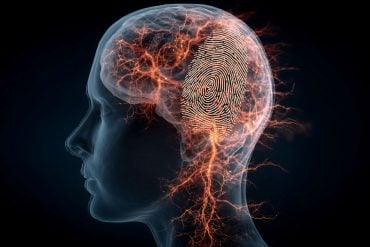Summary: Summary: A new clinical trial found that cannabidiol (CBD) is safe and potentially helpful in reducing problematic behaviors in boys with severe autism. While broad behavioral measures showed no significant differences from placebo, clinicians observed meaningful improvements in aggression, hyperactivity, and communication in many children taking CBD.
Two-thirds of participants were noted to have some clinical improvement, despite a strong placebo effect across both groups. The results suggest CBD may hold therapeutic potential, but further research is essential to confirm its effectiveness.
Key Facts:
- Safe and Tolerable: CBD caused no serious side effects and was well-tolerated by autistic boys.
- Targeted Benefits: Clinicians observed reductions in aggression and hyperactivity, and communication improved in nearly 30% of participants.
- Need for More Research: Results were promising but not conclusive; controlled studies remain crucial for confirming efficacy.
Source: UCSD
Researchers at the Center for Medicinal Cannabis Research at University of California San Diego School of Medicine have found that cannabidiol (CBD), a non-intoxicating compound found in cannabis, could help reduce problematic behaviors in autistic boys.
The results provide valuable insights into the potential benefits and limitations of CBD as a therapeutic intervention for autism.
Autism spectrum disorder is a complex neurodevelopmental condition characterized by social communication difficulties, repetitive behaviors and restricted interests. In more severe cases, these behaviors can also include self-injury or aggression.
While existing treatments can help manage these symptoms, there is a pressing need for effective and safe interventions to address the diverse needs of autistic individuals.
Some prior studies have suggested that CBD could help reduce problematic behaviors in children with autism. However, no controlled clinical trials have addressed safety, tolerability and efficacy of this treatment approach until now.
In the trial, autistic boys with severe behavior problems aged 7–14 years were split into two groups. One received eight weeks of daily CBD then eight weeks of placebo, separated by a four-week “washout” period in which no treatment was given.
The other group received placebo first, then CBD. Behavioral assessments were completed before and after each treatment phase. A total of 30 participants completed the trial.
The researchers found:
- CBD was safe and well-tolerated in boys with severe autism and behavioral problems – participants were able to take the drug without difficulty and there were no serious adverse events.
- While no significant differences were found between CBD and placebo on broad measures of behavior, clinician impressions suggested that approximately two-thirds of participants showed evidence of clinical improvement with CBD.
- Reductions in aggressive behaviors and hyperactivity were observed most frequently by clinicians, with improvements in communication seen in almost 30% of participants.
- While both groups showed improvements during the study, demonstrating a strong placebo effect, the CBD group generally showed greater improvement than the placebo group.
The study’s findings suggest that while CBD may have some benefits in reducing problematic behaviors in autistic children, its effectiveness is not universally established, and more research is needed to fully understand its therapeutic potential.
The study’s results also underscore the importance of rigorous, controlled trials in evaluating the efficacy of novel treatments for autism.
The study, published in the Journal of Autism and Developmental Disorders, was led by UC San Diego School of Medicine distinguished professors Doris Trauner, M.D., in the Departments of Neurosciences and Pediatrics, and Igor Grant, M.D., in the Department of Psychiatry.
About this CBD, Autism, and psychopharmacology research news
Author: Miles Martin
Source: UCSD
Contact: Miles Martin – UCSD
Image: The image is credited to Neuroscience News
Original Research: Open access.
“Cannabidiol (CBD) Treatment for Severe Problem Behaviors in Autistic Boys: A Randomized Clinical Trial” by Doris Trauner et al. Journal of Autism and Developmental Disorders
Abstract
Cannabidiol (CBD) Treatment for Severe Problem Behaviors in Autistic Boys: A Randomized Clinical Trial
Open-label and observational studies suggest cannabidiol (CBD) reduces problematic behaviors in autistic children. No controlled clinical trials have addressed safety, tolerability, and efficacy.
We conducted a double-blind, placebo-controlled crossover study of plant-derived CBD (Epidiolex®) to determine safety, tolerability, and behavior effects in autistic boys.
Autistic boys with severe behavior problems age 7–14 years were randomized to eight weeks of CBD up to 20 mg/kg/day and eight weeks of placebo separated by a four-week washout. Behavioral assessments were completed before and after each treatment phase.
Plasma concentrations of CBD were quantified. Primary outcomes were changes in total score of the Repetitive Behavior Scale-Revised (RBS-R), Child Behavior Checklist (CBCL), and Autism Diagnostic Observation Schedule-2 (ADOS-2).
Both groups improved on the RBS-R and CBCL, with no significant difference between groups. ADOS-2 scores improved in placebo group only, but this improvement disappeared when other medications taken by the children were included in the analyses.
Blinded clinical impressions showed almost 2/3 of the participants had behavioral improvements with CBD; 1/3 showed either no change or improvement on placebo.
A strong placebo effect was observed. CBD had an acceptable safety profile. We did not find CBD to be clearly effective at reducing the broad range of behaviors characterized by the primary outcome measures.
There was clinically evident improvement with CBD in 2/3 of participants. A prominent placebo effect demonstrates the importance of placebo control in treatment studies.
Medications taken for behavior may reduce blood levels of CBD and may affect outcome measures.







